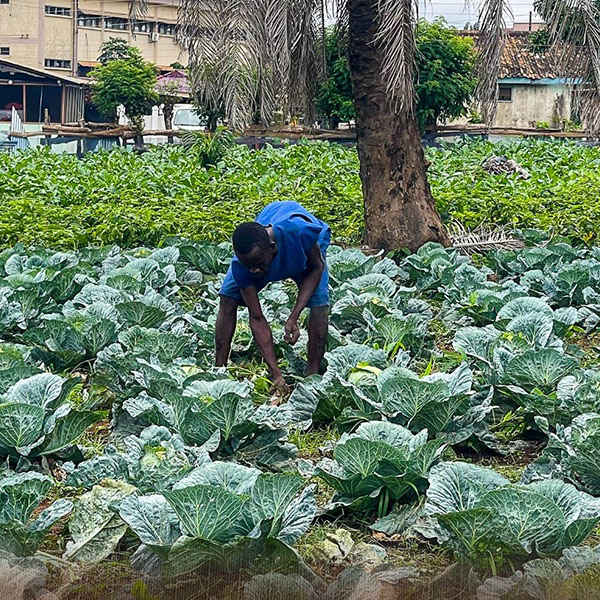At a time when Ghana’s prisons continue to face challenges of overcrowding, limited resources, and inadequate nutrition, the Sunyani Central Prison has emerged as a shining example of innovation, dignity, and transformation.
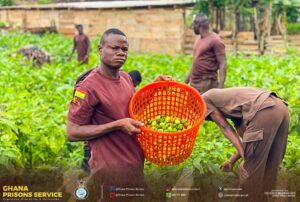
Under the leadership of the Regional Commander, Deputy Director of Prisons (DDP) Thompson Otsokpo, the facility has successfully cultivated vegetables such as cabbage and garden eggs to supplement the daily meals of inmates — a simple yet revolutionary act that is quietly changing lives behind bars.
The initiative forms part of the Director-General’s Kitchen Support Project, championed by Mrs. Patience Baffoe-Bonnie (Esq), Director General of the Ghana Prisons Service. The project calls on all prison facilities nationwide to work towards self-sufficiency in feeding inmates — a goal that not only addresses the persistent challenge of food shortages but also promotes health, dignity, and rehabilitation.
More Than Food: A Path to Dignity and Skills
For decades, prison meals in Ghana have been a subject of public concern — often inadequate and lacking in nutritional balance. But the Sunyani Central Prison’s farming initiative is rewriting that narrative.
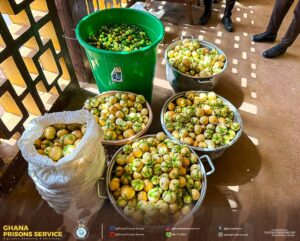
By cultivating its own vegetables, the prison now ensures inmates enjoy meals that are more balanced, varied, and nutritious. Fresh produce like cabbage and garden eggs not only enhance diet quality but also improve health outcomes and morale among inmates.
The initiative’s benefits go beyond the dining table. Inmates actively participate in the cultivation process — learning valuable agricultural and entrepreneurial skills that can support their reintegration into society after release. These hands-on lessons in responsibility, teamwork, and productivity are helping to redefine what rehabilitation truly means.
“This project has given our inmates a renewed sense of purpose,” said DDP Thompson Otsokpo. “They are not just eating better; they are learning, working, and preparing for life beyond these walls.”
Sustainability and Community Impact
The Sunyani prison farm also sells a portion of its produce to the public, generating income to support the facility’s operations. This model of self-sustaining rehabilitation reduces dependency on limited state funds and fosters stronger ties between the prison and the local community.
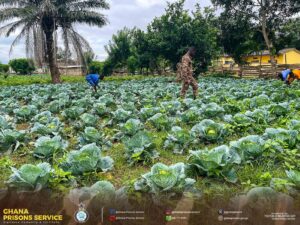
The proceeds are reinvested into maintaining the farm, purchasing seeds, and improving infrastructure — a circular system that ensures the initiative remains viable and impactful.
A Call for National Replication
What is happening in Sunyani should not remain an isolated success story. It is a clear demonstration that correctional facilities can be centers of productivity, not punishment. Ghana’s prisons can become hubs of rehabilitation and food security if the right investments, partnerships, and policy support are in place.
Civil society, agribusinesses, and development partners are encouraged to collaborate with the Ghana Prisons Service to scale up such programs across the country. Supporting inmate-led agriculture means supporting rehabilitation, reducing recidivism, and promoting national food resilience.
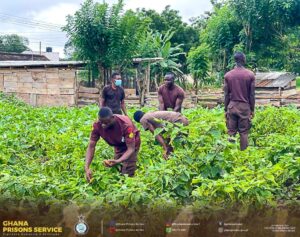
As Ghana continues to pursue social justice and reform, the story of the Sunyani Central Prison stands as a reminder that change is possible — even behind walls. When inmates grow their own food, they are not just cultivating vegetables; they are cultivating hope, discipline, and the skills for a better tomorrow.


